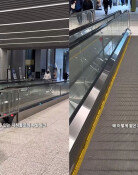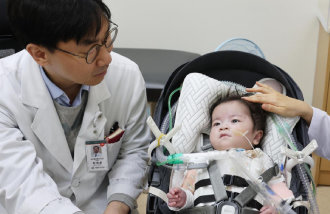Tensions Rise over Contaminated Dumplings
Tensions Rise over Contaminated Dumplings
Posted March. 01, 2008 03:21,
Mystery surrounding an outbreak of food poisoning in Japan linked to Chinese-made dumplings is deepening.
The case first came to light at the end of January when a highly toxic pesticide called methamidophos was detected in dumplings imported from China. Since Chinese authorities held a press conference on Feb. 28, the situation surrounding this incident has only gotten more tense.
Yu Xinmin, deputy director general of the Public Security Ministrys Criminal Investigation Bureau, criticized Japanese authorities investigating the case, saying that this is a case where pesticide was intentionally inserted, not caused by residual pesticide, He also added that it was unlikely that the poison was placed inside contaminated dumplings while in China.
Outraged by the Chinese response, Japanese authorities said, Chinese investigators are jumping to conclusions without a proper investigation. Japanese Cabinet officials also rejected Chinas claims.
Japan`s Justice Minister Kunio Hatoyama said, It is regrettable that Chinese authorities deny the possibility that the dumplings were poisoned in China, even though Japanese police and the Health Ministry are still investigating the case. He added, I think China is set on removing any questions over food safety with just months left before the Beijing Olympics.
Health Minister Yoichi Masuzoe expressed his disappointment. How can China make an announcement at this point when we should get to the bottom of this case?
Conflict between the two nations has been aggravated since it was discovered that a Kyoto News reporter in Beijing had been questioned by Chinese authorities for three hours on charges of purchasing and carrying the pesticide. This incident was publicized by Yu Xinmin in an interview with the press.
The reporter was arrested on his way back to Beijing, after having visited Tianyang Food Processing in Hebei Province, China. Kyoto News explained, He went there to find out whether an individual person can buy the poison, which is prohibited from being sold in China.
Chinese media also fueled anti-Japanese sentiment by reporting that the prosecution was investigating the Japanese reporter for allegedly contaminated the dumplings.
Some have voiced concerns that this row may have an adverse affect on Chinese President Hu Jintaos visit to Japan, scheduled for April. Currently, diplomatic authorities of the two nations agreed not to put this issue on the agenda. But if the situation continues to worsen, it will be difficult to avoid its negative effects.
sya@donga.com







